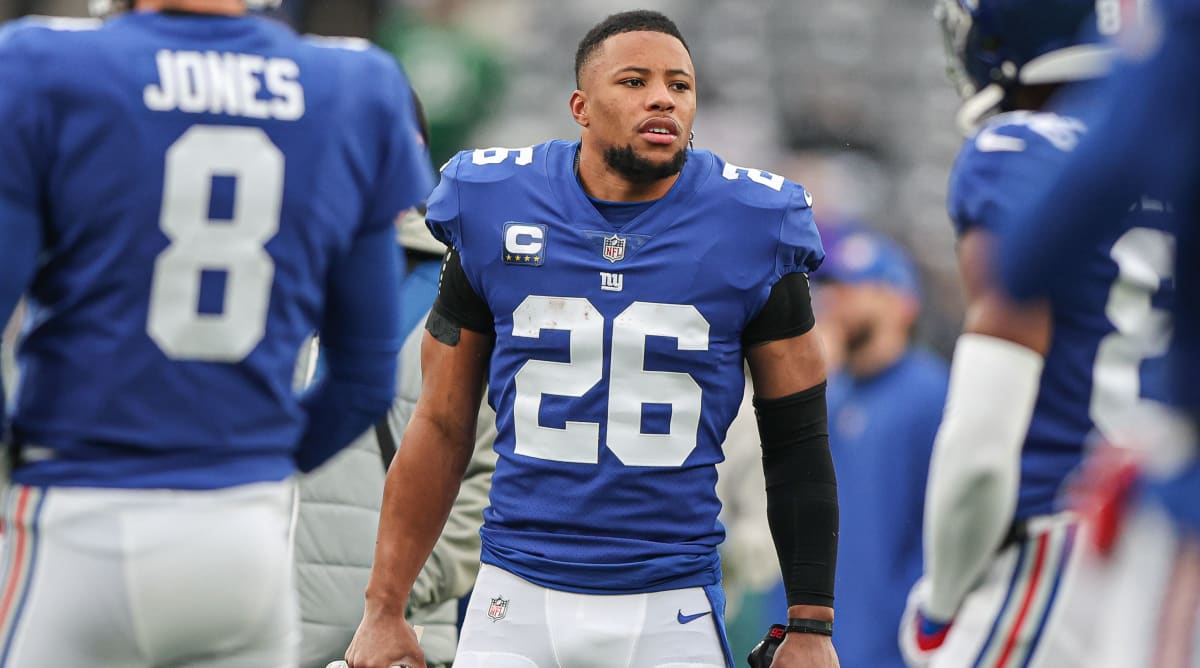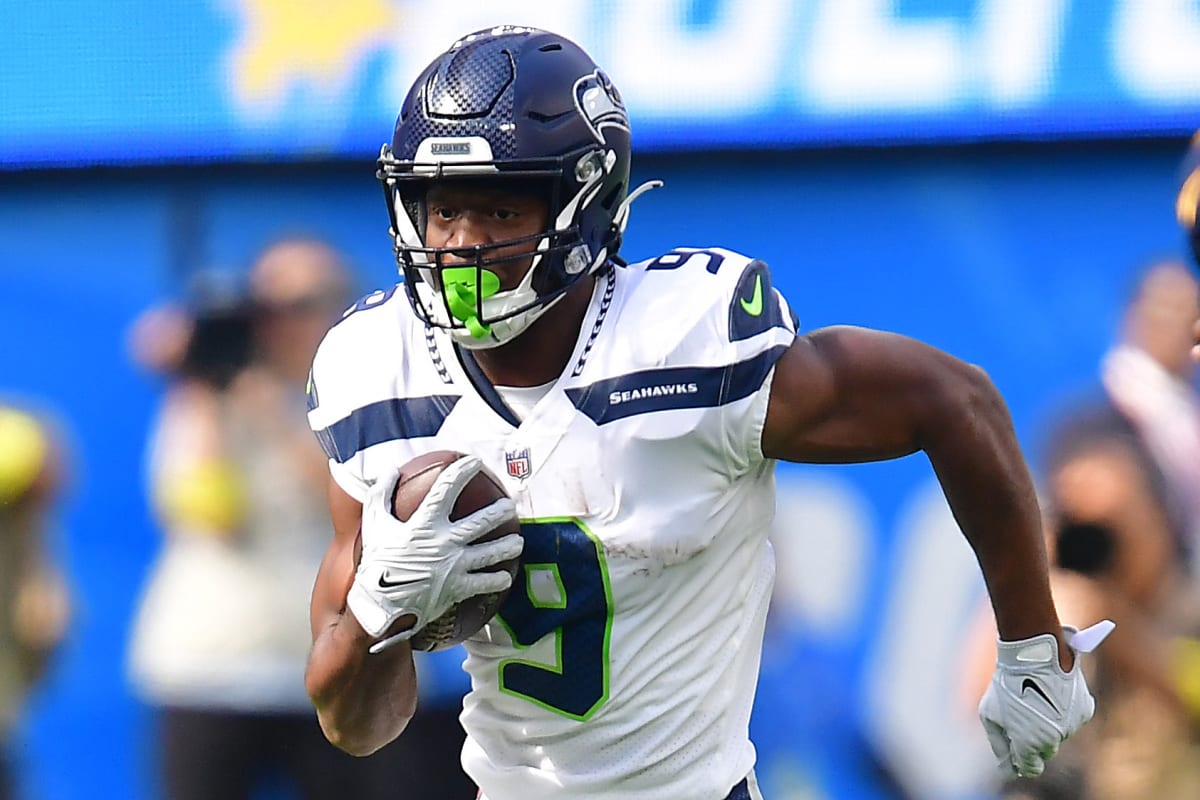View the original article to see embedded media.
View the original article to see embedded media.
Reliable running back production is hard enough to come by week to week without factoring in daunting matchups.
The hardest running back schedules in the fantasy playoffs bring absolutely brutal matchups for regular starters, though none of them are RB1s at the moment. Take a look ahead to these postseason schedules, which are filled with the likes of the Eagles, Browns and 49ers, four of the toughest teams against running backs this season.
(Week 15-17 opponents in parentheses.)
Saquon Barkley, Giants (NO, PHI, LAR)

Vincent Carchietta/USA TODAY Sports
With Daniel Jones and Darren Waller on injured reserve, Barkley is New York’s offense. Despite defenses’ ability to key in on him, Barkley has been able to salvage some fantasy production with sheer volume. He’ll continue to get force fed late in the year with Tommy DeVito under center but he might not find the same success he’s had to date against the Saints, Eagles and Rams. That Week 16 game in Philadelphia is especially scary as the Eagles allow an NFL-low 76.5 rushing yards per game and have only surrendered three scores on the ground all year. Checkdowns will be Barkley’s friend as yards and touchdown will be hard to come by especially in the first two rounds.
Devin Singletary and Dameon Pierce, Texans (TEN, CLE, TEN)
Singletary has turned in two top-10 finishes in the three games that Pierce (ankle) has missed. However, those 100-yard outings were against the Bengals and Cardinals, two of the NFL’s worst run defenses. He and Pierce have their work cut out for them come playoff time against the Titans, Browns and Titans again. Tennessee allows just 3.9 yards per carry, one of the best marks in the league, and Cleveland is one of 10 teams that holds opponents under 100 rushing yards per game. Pierce didn’t have a single top-12 finish before he was injured and him and Singletary will be cutting into each other’s work once he’s back in the lineup, against tough opponents to boot.
Kenneth Walker III and Zach Charbonnet, Seahawks (PHI, TEN, PIT)

Gary A. Vasquez/USA Today Sports
Seattle’s running backs begin the postseason with the worst possible draw: Philadelphia. Things get better for Walker and Charbonnet as the playoffs progress against the Titans and Steelers, but that Round 1 matchup could doom some teams. Walker, a high-end RB2, is out for a few weeks with an oblique injury, which means more responsibility for the rookie Charbonnet. He didn’t do much with the season-high 20 touches he saw last week against the Rams, who aren’t nearly as tough against running backs as the Eagles are. Whenever Walker returns he’ll be back in your lineup, but his upside will be capped come playoff time.
Gus Edwards and Keaton Mitchell, Ravens (JAX, SF, MIA)
Baltimore’s thunder and lightning backfield of Edwards and Mitchell have tough sledding ahead in the postseason. The Jaguars are one of the NFL’s best run defenses as they allow just 87 yards per game. Right ahead of them is the 49ers and the Dolphins also do their part to stop the run as they give up under 100 on the ground as well. Edwards has been extremely touchdown-reliant with nine scores during his five-week run as the RB2. That pace could slow down agains Jacksonville and San Francisco, two defenses that have surrendered a combined 11 rushing touchdowns this season. The rookie Mitchell has certainly flashed, including an RB5 outing in his second appearance, but he’s not getting enough touches to be relied on just yet, een in an efficient Ravens offense.
James Conner, Cardinals (SF, CHI, PHI)
Conner was a league-winner down the stretch run a season ago but with a playoff schedule that includes the 49ers, Bears Eagles it’s unlikely he’s able to deliver in the same way this year. Conner derived a ton of value from his involvement as a receiver when Kyler Murray was sidelined but that wasn’t the case before Murray went down last season and hasn’t been in the two games since his return. San Francisco and Philadelphia are better known for their defensive fronts, but Chicago allows the fewest yards per carry in the NFL (3.4) and is wedged in between the 49ers and Eagles in rushing yards allowed per game. Conner’s volume gives him an respectable floor but there’s a hard cap on his ceiling in these matchups.







